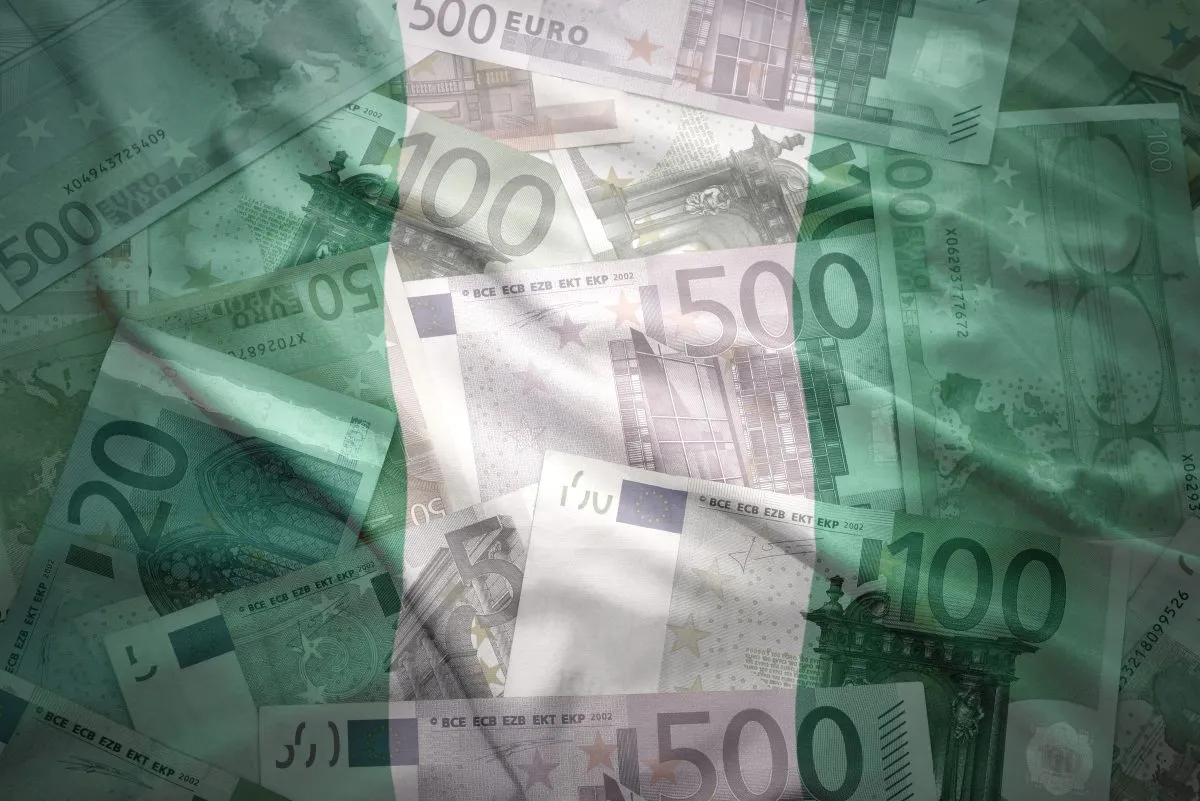With borrowings outpacing revenues, and expenditure exploding under the outgoing presidency of Muhammadu Buhari, economists, analysts, and former central bank governors are suggesting that Nigeria, Africa’s biggest economy, might be heading towards default.
Lamido Sanusi, a former central bank governor and Emir of Kano, has repeatedly said that Nigeria’s financial health is at risk and that the country “is heading towards bankruptcy”. He reiterated this sentiment at a recent event co-hosted by the Carnegie Endowment for International Peace and Agora Policy, an Abuja-based think tank.
Since President Buhari took over in May 2015, so-called “Ways and Means Advances” – overdrafts from the Central Bank of Nigeria (CBN) – have risen exponentially, from N790bn to N23.8 trillion ($1.7bn to $51bn) according to data from the institution.
The country has also increased borrowings to finance its budget deficit by as much as 371% in seven years. Traditional deficit financing rose from N2.41 trillion in 2016 to N11.34 trillion in 2023, according to data from Nigeria’s Debt Management Office (DMO). Recent World Bank data shows that 96.3% of government revenue went into debt service alone in 2022.
A recent approval from lawmakers to allow Buhari to convert a N22.7 trillion ($49bn) Ways and Means overdraft into bonds to be repaid in about 40 years is one attempt to get to grips with the problem.
“A high interest rate and the repayment on overdrafts are parts of the reasons that debt servicing has hit the roof lately,” said Waziri Adio, former executive secretary of the Nigeria Extractive Industries Transparency Initiative (NEITI) and founder of Agora Policy, in an opinion piece.
A lower interest rate payment could more than likely “reduce the portion of revenue swallowed by debt and, by extension, lessen the need to take on new debts, and free up additional resources,” Adio wrote.
The DMO had said earlier that the securitisation of the loan could help the government cut down on its budget deficit. While approval means that the government will pay lower interest rates than it does on the Ways and Means overdraft – 9% rather than the existing 21% – it also means that the country’s debt stock has grown, to a projected N77 trillion in June. That is within the government’s self-imposed 40-45% debt-to-GDP ratio, but analysts are still worried.
The government is putting a positive spin on it by saying that Nigeria’s debt is still within manageable limits,” Adio tells African Business, when in reality Nigeria’s rising debts should be of grave concern.
“Yes, if you use the debt-to-GDP ratio, Nigeria’s public debt is now about 35% of GDP, up from 23% of GDP (before the advances from CBN were incorporated),” he says. “A threshold of 45% to 60% is allowed for developing countries. But it can be a misleading metric because debts are paid from government revenues, not from GDP.
“According to the World Bank, the federal government used 96.3% of its revenues to service debt in 2022. Put another way, for every N100 that the FG made in 2022, it spent N96.3k to service debts. This means that salaries, overheads and capital had to be borrowed, which in turn will increase not just the debt stock but also the amount needed to service debt. S Nigeria has a major debt problem that is rooted in its inability to generate enough revenue to pay its debt and meet other pressing needs.”
Joachim MacEbong, senior governance analyst at Stears Insight, agrees.
“Those who use debt-to-GDP and examples like Japan are mischievous, because Nigeria’s revenue collection does not mirror its GDP. You know, I think that 40% limit is very clever because Nigeria is already spending all its revenues to service debt. If revenues were much more in line with GDP, then the 40% limit would likely be relaxed.”
Less money for critical spending
The widening of the government’s fiscal deficit is “crowding out critical spending on social services and infrastructure,” say Babajide Fowowe and Muhammed Shuaibu in the Agora Policy report “Urgent Policy Actions on Fiscal, Monetary and Trade Fronts”.
“Notwithstanding that the debt-to-GDP ratio is still below the self-imposed benchmark of 45%, the inability to invest borrowed funds in productive projects has weakened the nation’s ability to repay its debt,” says the report.
The inflation rate rose to 22.2% in April from 22.04% a month ago, an 18-year high, which means the purchasing power of at least 40.1% of Nigerians who are poor continues to be eroded. Unemployment still remains high at 33.28%.
“Despite favourable global oil market conditions, domestic oil production shocks have dampened oil revenue inflows and have drastically increased the cost of the petrol subsidy, thereby widening [the] federal government’s fiscal deficit,” says the report.
Growing public debt levels are also crowding out private investment as government borrowing competes for capital markets funds.
“Public debt is currently crowding out private sector access to credit because for the finance institutions, it makes more sense for them to hold government debts than for them to actually provide credits to the financial sector. So from the overall economic growth standpoint, you are hampering private sector access for them to reinvest in their businesses and employ more people,” says Ikemesit Effiong, head of research at SBM Intelligence.
In a recent paper, intelligence firm Pangea-Risk says Nigeria could attempt to restructure debts in 2023, but there are significant hurdles.
“While an external restructuring seems improbable in the immediate outlook, a domestic debt swap is on the cards in 2023, despite concerns over its legality,” says the report.
“Transparency over Nigeria’s debt profile, future central bank lending policies, and relations with creditors will determine whether Nigeria is heading towards a managed debt treatment in 2023 that would reset its debt profile on a sustainable path, or if the country is facing a debt crisis and potential non-payment scenario. The application of a proven and respected debt treatment model will be critically important for Nigeria’s credit reputation going forward.”
Robert Besseling, CEO of Pangea-Risk. warns that if “Nigeria’s central bank does not cease its controversial direct budget financing and development funding policies later this year, the country’s debt position will significantly deteriorate and make a painful restructuring inevitable.”
Bankruptcy watch
“The potential for bankruptcy is significant, because the debt service to revenue situation is unsustainably high at over 100%,” says MacEbong.
“This means that all current revenues are taken up by debt service. The country needs more revenue from somewhere quickly, while slowing down its accumulation of further debt.”
Adio predicts that “the risk of bankruptcy or default is low in the near term. But there will be the temptation to continue to borrow to fill the gap. It may get to a point that Nigeria may need to borrow to service its debts. It is clear that Nigeria cannot borrow its way out of the fiscal bind that it has put itself in. We have the largest economy in Africa, based on the size of our GDP. But we have the lowest tax-to-GDP rate in Africa, perhaps the lowest in the world. The average tax-to-GDP ratio in Africa is 18%. Our ratio is between 6% and 8%.”
“So, we need to generate more revenues by expanding the tax base, increasing some tax rates (especially taxes on luxury and sin items like alcohol and tobacco and even sugary drinks), address oil theft and -ncrease oil revenue. We need to ensure that revenue generating agencies remit what they should be remitting as stipulated by the law. And we need to block leakages and wastes like petrol subsidies that will gulp N6.72 trillion this year alone.”
The worry remains that “with major sub-Saharan African economies showing signs of stress, investors might not be willing to offer the wiggle room Abuja needs to sort itself out fiscally,” says Effiong.
Want to continue reading? Subscribe today.
You've read all your free articles for this month! Subscribe now to enjoy full access to our content.
Digital Monthly
£8.00 / month
Receive full unlimited access to our articles, opinions, podcasts and more.
Digital Yearly
£70.00 / year
Our best value offer - save £26 and gain access to all of our digital content for an entire year!

 Sign in with Google
Sign in with Google 



